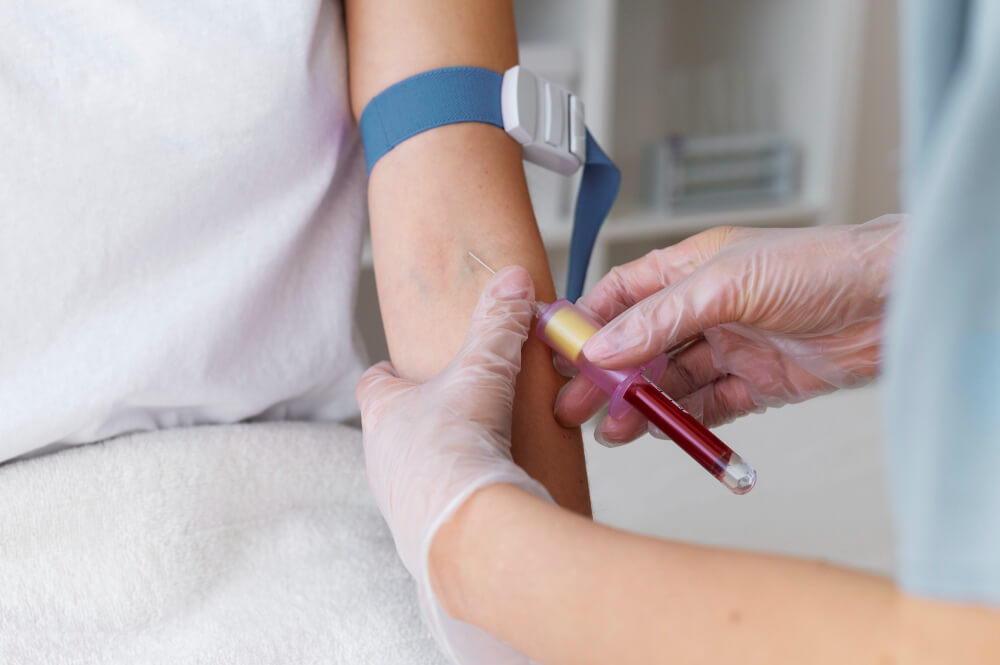Safeguarding Your Liver: Understanding Hepatitis B & C and the Importance of STD Testing
Sexual health encompasses not just preventing sexually transmitted diseases (STDs) but also safeguarding your liver from viruses like hepatitis B and C. These viruses can be transmitted through sexual contact, highlighting the importance of comprehensive STD testing that includes screening for hepatitis B and C. Early detection through routine testing allows for prompt treatment and minimizes the risk of long-term liver damage.
This article empowers you to prioritize your well-being by providing a comprehensive understanding of hepatitis B and C, along with the importance of STD testing that includes screening for these viruses.

Demystifying Hepatitis B & C: Causes, Symptoms, and Potential Risks
Understanding the Viruses:
- Hepatitis B: This virus spreads through bodily fluids like blood, semen, and vaginal fluids. It can be transmitted through sexual contact, sharing needles or syringes, and from mother to child during childbirth.
- Hepatitis C: Primarily transmitted through blood-to-blood contact, hepatitis C can be spread through unprotected sexual contact, sharing needles or syringes, and from mother to child during childbirth (though less common).
Symptoms:
Hepatitis B and C often present with similar symptoms, though some individuals may not experience any symptoms in the early stages. Common symptoms include:
- Fatigue
- Loss of appetite
- Nausea and vomiting
- Abdominal pain
- Dark urine
- Jaundice (yellowing of the skin and eyes)
Potential Risks:
Left untreated, hepatitis B and C can lead to serious health complications:
- Chronic Liver Disease: Untreated infections can lead to chronic liver inflammation, potentially progressing to cirrhosis (scarring) of the liver.
- Liver Cancer: Chronic hepatitis B and C increase the risk of developing liver cancer.
- Liver Failure: In severe cases, liver function may deteriorate, leading to liver failure.
The Power of Early Detection: STD Testing for Hepatitis B & C

Early detection through routine STD testing that includes screening for hepatitis B and C is crucial for preventing complications. Here’s a breakdown of various testing methods available:
- Blood Tests: A simple blood test can detect the presence of hepatitis B and C markers, indicating infection or immunity.
- Rapid Tests: While not as comprehensive as blood tests, rapid tests for hepatitis B can offer quicker results in certain situations.
STD testing for hepatitis B and C is readily available at various healthcare providers’ offices, clinics, and Planned Parenthood locations. Many offer confidential testing, ensuring privacy and reducing anxieties associated with the process.
Benefits of Early Detection and Treatment
Early detection and treatment of hepatitis B and C offer numerous benefits:
- Prevents Complications: Prompt treatment prevents the development of serious liver damage and complications like cirrhosis and liver cancer.
- Improved Liver Function: Effective treatment can significantly improve liver function and overall health.
- Reduced Risk of Transmission: Treatment minimizes the risk of transmitting hepatitis B and C to partners.
- Vaccination Option for Hepatitis B: Vaccination offers protection against future infection with hepatitis B.
Minimizing Your Risk: Responsible Sexual Practices
While STD testing plays a crucial role in promoting sexual health, practicing responsible sexual behavior is vital for minimizing your risk of contracting hepatitis B and C:
- Consistent Condom Use: Using condoms correctly and consistently during vaginal, anal, and oral sex significantly reduces the risk of contracting hepatitis B and C.
- Communication is Key: Open communication with partners about sexual history and STD testing, including hepatitis B and C, is crucial for responsible intimacy.
- Vaccination for Hepatitis B: Vaccination is highly effective in preventing Hepatitis B infection. Consider discussing vaccination with your healthcare provider.
